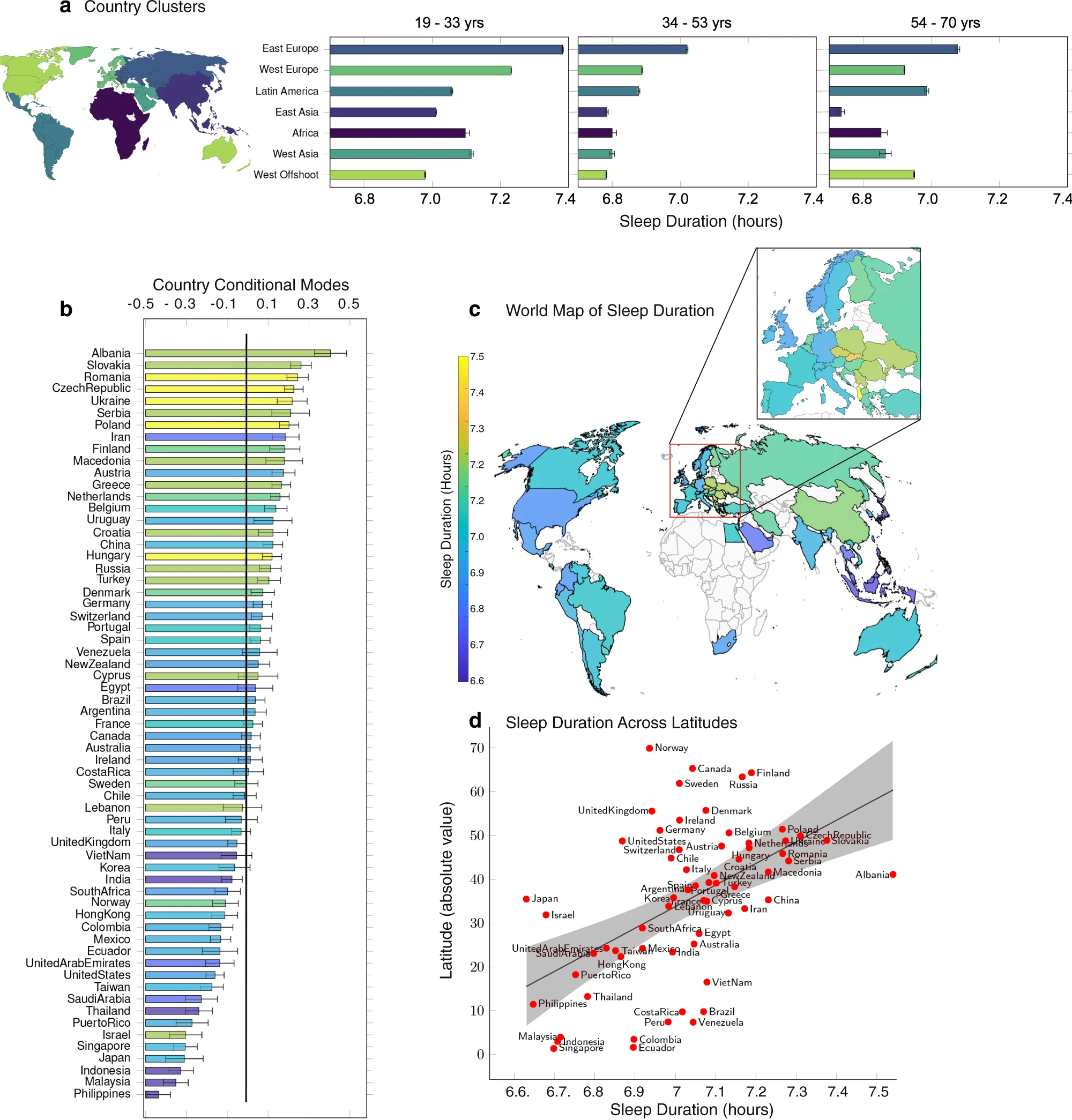Sleep Duration and Performance
31st Dec 2022
Happy new year!!
An excellent 2023 for all of us!
Coutrot, A., Lazar, A.S., Richards, M. et al. Reported sleep duration reveals segmentation of the adult life-course into three phases. Nat Commun 13, 7697 (2022). https://doi.org/10.1038/s41467-022-34624-8
Creative Commons License, so a big thanks to the authors!
As conclusion: in a worldwide study with n=730,187 paticipants, based in better spatial performance, an overall 7 hours of sleep duration is reasonable recommended for adults. Inverted U shape for the 3 age groups, meaning both sleep durations shorter than 7 hours and those longer than 7 hours are equally harmful.
It is important to keep in mind:
1) age differences (three groups: 19-33yrs, 34-53yrs, 54-70yrs),
2) latitude of the countries,
3) subject and population variability
is needed.
The introduction, as almost always in this papers, is a masterpiece of condensed information, as represents the state of the art of the knowledge body.
Here the introduction:
"Sleep duration substantially varies within and between individuals. Understanding the determinants of these variations is key in many health and social domains, as sleep is essential for our well-being. Sleep has a profound effect on our bodily functions ranging from the way our genes and cells operate through various physiological processes, from immunity and metabolism to complex brain functions involving cognition and mental health. Both genetic (e.g., sex) and environmental (e.g., artificial lighting) factors modulate sleep. In particular, age has been shown to explain a large share of the variance in sleep duration within the general population, with children sleeping considerably longer and better than adults, and younger adults sleeping less than older ones. Reported sleep duration has been found to vary across nations, with Asians (e.g., Japan, Indonesia, Malaysia, Philippines) sleeping on average less than other nations.
However, few epidemiological studies have reported sleep patterns in the general population across nations. They have often focused on a particular age group , clinical population, or studied a specific sleep problem. Previous studies also often relied on modest sample sizes (<1000 individuals), and when a larger sample was reported it consisted of aggregate data across studies with heterogeneous designs. Furthermore, sleep epidemiology has almost exclusively focused on high-income countries. Since many sleep-related environmental factors substantially vary with countries’ level of development (e.g., paid work time, artificial lighting), the results reported in the literature may not generalize to low- and middle-income countries (84% of the world’s population).
Here, we present the distribution of reported sleep durations of 730,187 participants spread over 63 countries. This data was collected as part of the SeaHero Quest project, a mobile video game designed to assess navigationability in the global population. Navigationability is a multifaceted construct involving several cognitive processes, and has been strongly associated with many life outcomes such as academic achievement and career success in science. Participants were asked several questions including: How much sleep do you get on average each night? A total of 3,881,449 participants played at least one level of the game, and 27.6% provided their average sleep duration. We removed participants above 70 years old because we have previously shown a strong selection bias in participants above this age, causing their performance to be substantially higher than would be expected in unselected participants of the same age. This selection bias can be due to the fact that internet and mobile devices adoption rate are particularly low in less educated older adults. As a result, older participants are less likely to be representative of their class of age. We removed participants with an average reported sleep duration above 10h (0.6%) or below 5h (0.9%). To ensure robust findings within countries we removed participants from countries with fewer than 500 players. This resulted in 730,187 participants from 63 countries included in our analysis."
From:
Coutrot, A., Lazar, A.S., Richards, M. et al. Reported sleep duration reveals segmentation of the adult life-course into three phases. Nat Commun 13, 7697 (2022).
https://doi.org/10.1038/s41467-022-34624-8

A paper with Attribution 4.0 International (CC BY 4.0) license.
PMS/pms.